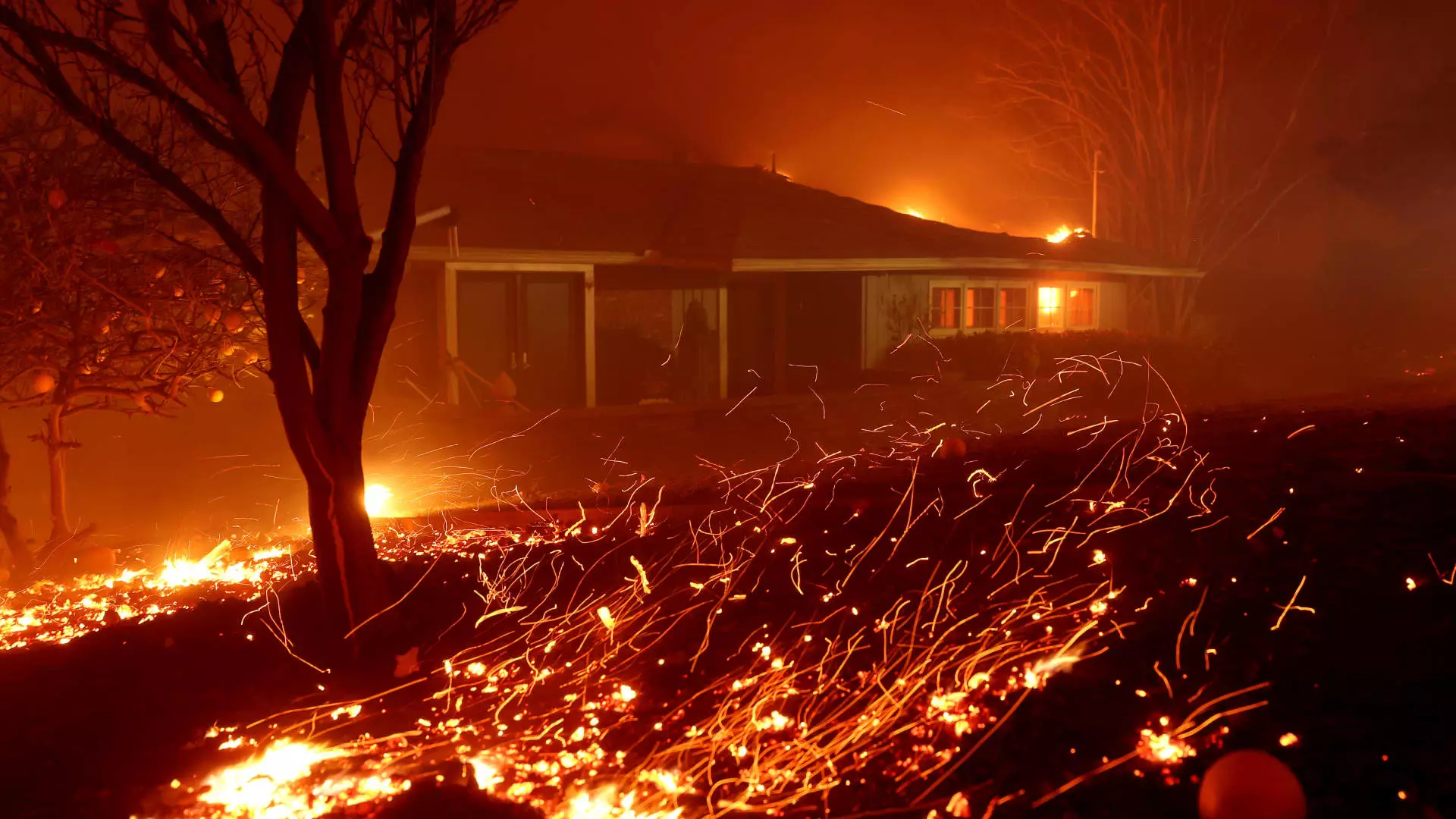As climate change continues to manifest through increasingly severe natural disasters, its impact on real estate markets is becoming more starkly apparent. Wildfires raging across California, particularly in the Los Angeles area, are not only devastating communities but also herald a broader crisis that will reshape housing markets from coast to coast. The implications of these environmental catastrophes extend well beyond the immediate geographical confines of the flames; they point to a profound transformation in how real estate is valued, insured, and financed in the coming decades.
While it is premature to fully quantify the financial fallout from the recent wildfires in Los Angeles, industry experts project significant repercussions, particularly in insurance costs. A fundamental principle of insurance is that risks are priced into policies. As climate-related risks escalate, so too will insurance premiums. An analysis by First Street, a climate-centric data firm, indicates that insurance costs could surge dramatically over the next 30 years—nationally averaging a 25% increase, with a substantial portion due to the escalating influence of climate change. For homeowners, this means an added financial burden that will inevitably reduce the value of their properties.
By the year 2055, it is estimated that 84% of homes in the U.S. may experience a decrease in value, amounting to an astonishing loss of $1.47 trillion. This decline is not uniform; while some regions may see only minor reductions in property values, others, particularly in states like Texas, Florida, and Louisiana, may face devaluations of up to 50%. The realization that climate change is more than a theoretical discussion is hitting home. As Jeremy Porter from First Street notes, it is a measurable force that is reshaping economies and real estate markets.
The response from the insurance industry has not been swift enough to keep pace with the accelerating frequency and intensity of weather events. Historically, insurers have opted not to adjust pricing to reflect the increasing frequency of climate-driven catastrophes, but this status quo appears to be crumbling. Dave Burt, the founder of DeltaTerra Capital, indicates that we might be on the cusp of a new reckoning akin to the 2008 financial crisis, as the housing market grapples with the financial implications of rising insurance costs.
Burt’s predictions are sobering: he estimates that within the next five years, a significant portion of the housing market—around 20%—could experience a decline of approximately 30% in value due to climate risks. This market adjustment could mirror the housing collapse of the late 2000s, revealing vulnerabilities in both the economic and insurance landscapes.
The specter of foreclosure looms larger in climate-impacted areas. Historical data show that regions affected by severe weather events, such as Hurricane Sandy in 2012, experienced dramatic spikes in foreclosures—in Sandy’s case, the rise was 46%. This trend poses a dual threat: not only do foreclosures depress local real estate markets, but they also contribute to a cycle of devaluation that further restricts potential buyers.
Banks and mortgage giants such as Fannie Mae are beginning to take notice, albeit reluctantly. The institution has been slow to integrate climate risk assessments into its underwriting processes, often neglecting to account for potential future climate impacts in property valuations. This oversight raises serious questions about the readiness of the mortgage market to face the evolving risks posed by climate change.
As we confront the evolving landscape of real estate amidst climate change, potential solutions remain tethered to policy changes and community resilience measures. Local governments may consider raising taxes to fund improvements that enhance infrastructure against climate effects, thereby indirectly increasing the cost of home ownership. Moreover, strategies from firms like DeltaTerra highlight the necessity of integrating risk management practices into investment strategies, signaling a move toward greater financial literacy in the context of climate risks.
In a troubling political climate, steps such as the Trump administration’s rollback of the Federal Flood Risk Management Standard underscore the challenges ahead. Such decisions may inhibit proactive measures designed to fortify our communities against natural disasters, leaving them more vulnerable in the long run.
The realm of real estate is undergoing a seismic shift due to the undeniable realities of climate change. As homeowners, investors, and policymakers grapple with the immediate effects of disaster, the long-term consequences are poised to redefine not just housing markets, but the very fabric of our economic systems. Addressing these challenges requires urgent action and a commitment to adapting to a rapidly changing world.

